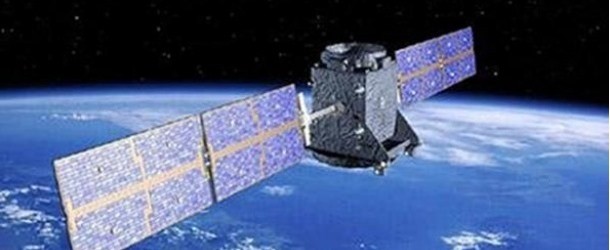U of Strathclyde, Canada’s QYESSat, & Glasgow’s RefQ Developing Quantum Encryption Scheme to Be Tested on Satellite

(U.Strathclyde.Glosgow) The University of Strathclyde has announced the use of quantum technology to encrypt messages to develop a secure global communication network to be tested via a satellite. The project will develop a space-based photonics source of quantum signals that is scheduled for launch on the Canadian QYESSat (Quantum Encryption and Science Satellite) mission. The quantum key distribution technology developed in this project is targeted to fly on board QEYSSat, thereby extending the scope of the mission and demonstrating links to ground stations on both sides of the Atlantic.
Strathclyde will also collaborate with the project’s academic lead, the University of Waterloo in Ontario, on theory and modelling of the quantum payload, as well as developing secure communication protocols based on the new hardware.The first prototypes of the UK systems have been delivered and are now undergoing integration testing in Canada.
The overall leader of the project, named RefQ, is Glasgow-based aerospace company Craft Prospect and the University of Bristol is also a partner. Strathclyde enjoys a close relationship with the University of Waterloo, which is one of Strathclyde’s International Strategic Partners.
Daniel Oi, Senior Lecturer in Strathclyde’s Department of Physics, is the University’s lead on RefQ. He said: “This project aligns with the efforts to build collaborations between Strathclyde and the University of Waterloo in the area of quantum technologies. Craft Prospect is also a long-term commercial partner with Strathclyde in the development of CubeSat quantum key distribution.
“In addition, RefQ is connected with the UK Quantum Technology Hub in Quantum Communications, in which Strathclyde is a partner, in its mission to launch a CubeSat in 2023-24.”
UK Science Minister Amanda Solloway said: “We are only at the start of developing quantum technologies, but it is already clear that they offer us a world of opportunity across entire sectors like healthcare, communications and financial services.
“The UK and Canada have a strong collaborative relationship in science and technology. By our businesses and academics working together, these incredible new projects will help us accelerate the development, scale up and commercialisation of quantum technologies, ensuring the UK remains a world-leader in this area.”
Navdeep Bains, Canada’s Minister of Innovation, Science and Industry, said: “Quantum technologies have the potential to transform industry and society in Canada, the United Kingdom, and around the world. These ground-breaking collaborations between researchers in Canada and businesses in the UK will help further our knowledge of these transformative technologies.”
The UK technology in ReFQ stems from work initiated by the Quantum Research CubeSat (QUARC) project led by Strathclyde and further developed by the ROKS mission (due for launch in 2022) led by Craft Prospect together with the University of Bristol. QUARC and ROKS are supported by the UK Space Agency under the National Space Technology Programme, Innovate UK, and the Quantum Technology Hub in Quantum Communications. Strathclyde is also working with the Satellite Applications Catapult and various companies on the commercialisation of space quantum technologies.
The University of Strathclyde is the only academic institution that has been a partner in all four EPSRC funded Quantum Technology Hubs in both phases of funding. The Hubs are in: Sensing and Timing; Quantum Enhanced Imaging; Quantum Computing and Simulation, and Quantum Communications Technologies.



















